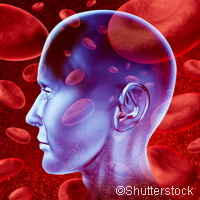EU scientists giving hope to stroke sufferers
The EU reports around one million cases of stroke each year, and stroke is the second leading cause of death worldwide, just after cardiac disease. EU data show that about 25 % of men and 20 % of women will likely suffer a stroke if they reach 85 years of age. Despite the fatal characteristics of stroke, triggered by disturbances in the blood supply to the brain and then rapid loss of brain function, researchers believe improved therapies can help patients survive. Two EU-funded projects are now investigating ways to give thousands of patients hope and life after they are diagnosed with stroke. The EUSTROKE and ARISE projects have brought together researchers, clinicians and small businesses to work on cutting-edge research and development for promising new therapies. EUSTROKE ('European stroke research network') and ARISE ('Affording recovery in stroke') are both funded under the Health Theme of the EU's Seventh Framework Programme (FP7) to the tune of EUR 10 million and EUR 11 million, respectively. The EUSTROKE consortium, which is headed by the University of Heidelberg in Germany, is investigating ways to boost our understanding of the neurovascular system in order to ensure better prevention and treatment of stroke. The ARISE team, for its part, is developing and testing new treatments to induce repair of lost function. Positive results could bring relief and hope to stroke patients. 'From the beginning, the European Commission encouraged us to work closely together,' said EUSTROKE leader Professor Stephen Meairs from the Department of Neurology at the University of Heidelberg in Germany. 'We first formed common platforms for conducting clinical trials and training young scientists. We decided to use the same stroke models and methods, and also to share imaging advances. The ultimate cooperation, however, was the total merging of the two consortia to form the European Stroke Network (ESN). This allows us to optimally use European resources and brings the best minds in stroke research together to combat this devastating disease.' By working together, the ESN group has succeeded in making a number of breakthroughs. A case in point is their development of fresh concepts for the treatment of life-threatening brain swelling after stroke. ESN researchers have learnt that improving the treatment environment could give stroke outcome a boost. Patients playing games or working on various activities during the recovery phase can make this possible. The ESN scientists used state-of-the-art imaging techniques to demonstrate how these types of activities could generate new brain connections. The group is also developing novel methods to break up blood clots in brain vessels with acoustic energy, thus improving acute stroke therapy. They are also examining sophisticated immunotherapy to prevent the delayed neurotoxic effects of the thrombolytic 'tissue Plasminogen Activator' (tPA). By assessing the role of inflammation in stroke, they also observed that chronic systemic infection increases ischemic and blood-brain barrier damage, which in turn leads to sustained cerebrovascular inflammation. 'The various impacts of a stroke and the subsequent reorganisation and repair of the brain are highly complex,' said ARISE coordinator Professor Ulrich Dirnagl from the Department of Neurology and Experimental Neurology, and the Center for Stroke Research Berlin at the Charite University Medicine in Germany. 'Developing successful strategies for brain protection and repair therefore requires a joint effort involving experts in basic neuroscience, vascular biology, neuro-immunology, neuro-protection, neuro-regeneration, drug delivery and clinical stroke neurology.' Commenting on the work being done by ESN, Professor Meairs said, 'A stroke can be devastating. And there is simply nothing else that absorbs so many billions of euros in care. Stroke is the biggest cause of disability and it's getting worse. So we have very good reasons for attacking this problem.'For more information, please visit:EUSTROKE:http://www.europeanstrokenetwork.eu/ARISE:http://www.arise-europe.net/index-preview.php
Countries
Germany



